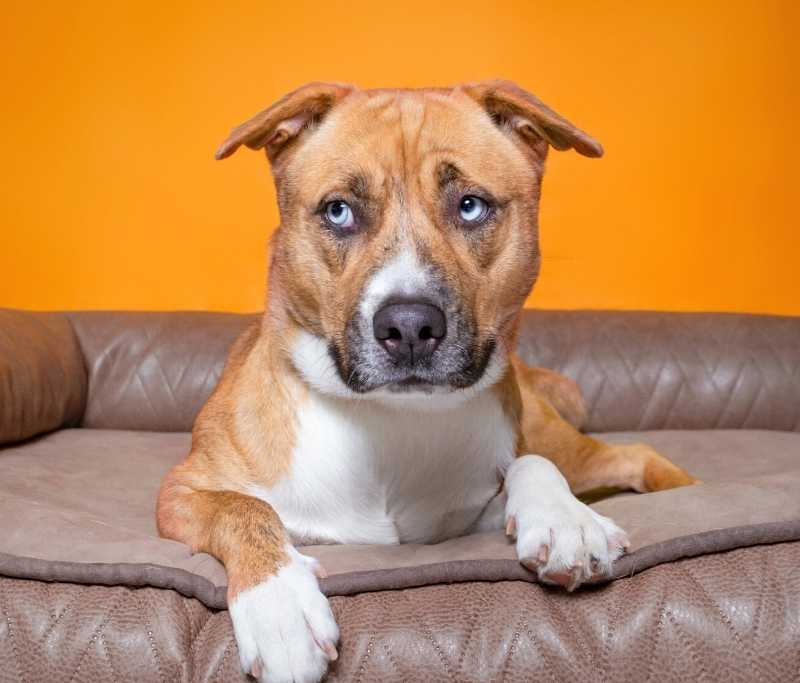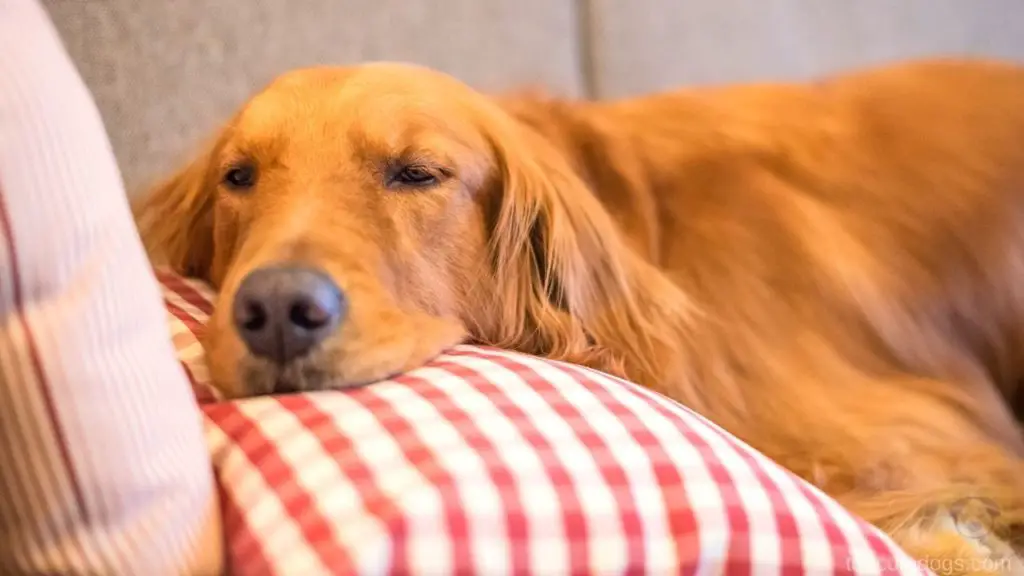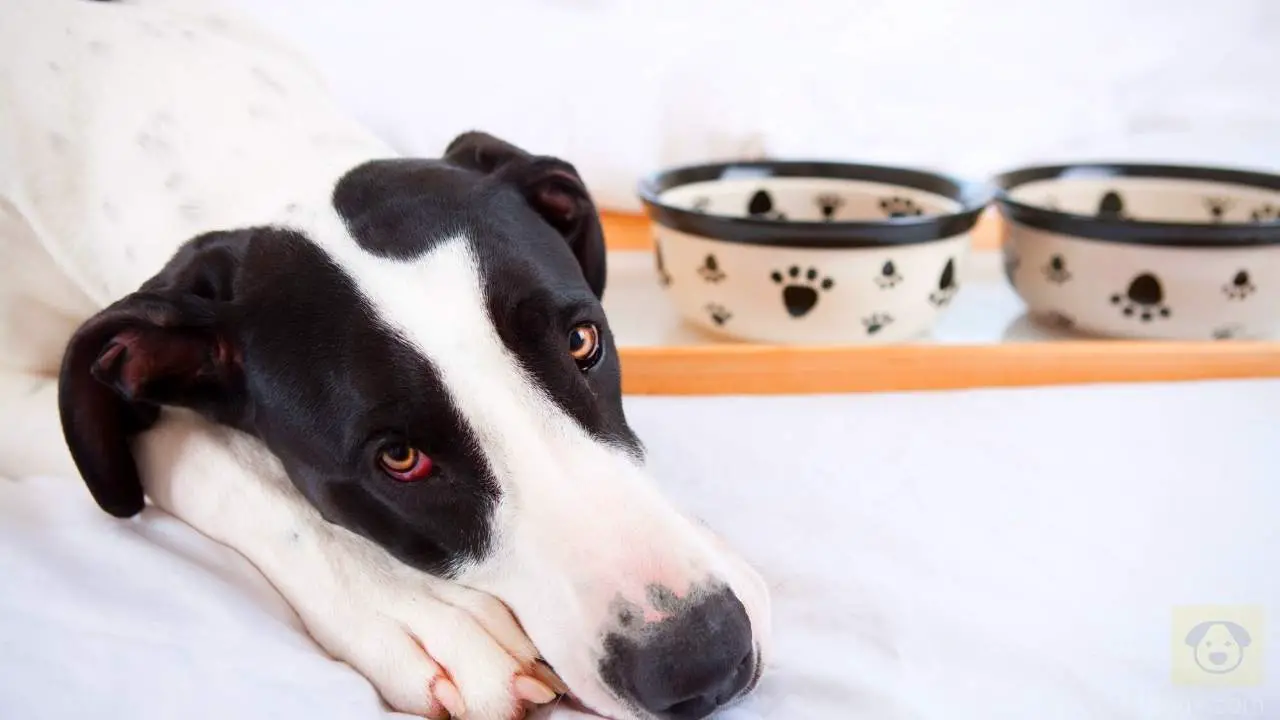Being a dog owner is an experience each owner cherishes. We all want our dogs to be healthy and feel good when they are well; however, dogs, too, are prone to certain health conditions, just like humans.
It is of utmost importance that you, as the owner understand these conditions to be better equipped.
Bloat, gastric dilatation, and volvulus are severe health conditions that your dog can suffer from; if left untreated, they can be fatal and most likely end in death. The definite causes of GDV are unknown; however, understanding it and knowing its symptoms in dogs can help you save your dog.
Table of Contents
Will A Dog With Bloat Still Want To Eat?
Dogs will avoid eating when they have bloat. Bloat is a very painful process where the stomach fills up with gas and flips upside down. The upside-down stomach compromises blood flow and the movement of food. Your dog is in excruciating pain amid everything and will most likely not have any form of appetite or ability to ingest its food.

Will A Dog With Bloat Still Want To Play?
Dogs with bloat will not be very active. Gastric dilatation and volvulus (GDV) are one of the most painful health conditions where the stomach fills up with gas or liquid and flips. This causes the stomach to swell and become firm to the touch. Your dog is in immense pain when bloating and has been known to fall into depression and not want to play or exercise.
Will A Dog With Bloat Still Drink Water?
Dogs with bloat will still drink water. Bloat is a condition where the stomach cannot effectively digest its contents, so they remain inside until it ferments and causes pressure.
This stretches the stomach causing pain; however, even though painful, your dog will most likely opt to drink water instead of eating because it is easier to go down. They will consume in small amounts and not try to aggravate their condition.
Will A Dog With Bloat Pee?
Yes, a dog with bloat is still able to pee. Bloating is one of the most painful experiences your dog can go through because the stomach is being stretched out from the inside and taking up more space than intended. Peeing intensifies the pain because your dog has to push to pee, and as they are doing so, they are exerting pressure on their stomach which hurts them.
Will A Dog With Bloat Sleep?
Sleeping becomes a discomfort for a bloating dog. According to medical experts, bloating is one of the most painful experiences your dog can experience, making most of their daily activities and routine more challenging. Sleeping becomes even worse when the stomach rotates and flips upside down, leading to unbearable pain. Your dog will not be able to sit calmly or sleep.

Will A Dog With Bloat Poop?
Dogs with bloat will not poop. When your dog gets bloats, its stomach cannot process foods, gas, or liquids. Instead of being taken out through the anus, the gases or food are trapped in the stomach. These contents stay there until it causes pressure inside the stomach; however, they will still not be able to poop because nothing was digested.
Will A Dog With Bloat Eat Grass?
Dogs with bloat may eat grass to ease an upset stomach. Many dogs will consume grass when they are feeling nauseous. Many Veterinarians believe that eating grass either settles the stomach or induces vomiting to get the irritant out. Your dog may be trying to ease their sore stomach or is trying to relieve itself by vomiting. Monitor your dog carefully and visit the vet for assistance.
How Do I Know If My Dog Is Suffering From Bloat?
The best indications of bloating are a swollen stomach and retching. When gases and stomach contents have nowhere to go, they ferment, resulting in pressure being built. This pressure causes swelling of the stomach that is firm to the touch. Another good sign is retching, where they attempt to vomit, but nothing comes out. Other good indications include:
- Look of distress.
- Excessive drooling.
Can Dogs With Bloat Still Poop?
Dogs with bloat find it difficult to poop. The stomach cannot digest food and other liquids, so it stagnates inside. Contents cannot reach the rectum where they can be let out, which poses long-term consequences, including constipation. This condition is aggravated when the stomach flips upside down and restricts the flow of blood and food. Take your dog immediately to the vet if you suspect bloat.
How Do You Debloat A Dog’s Stomach?
You should not try to treat your dog’s bloat at home; take them to the vet immediately. Suppose under; they will be stabilized shock. In that case, diagnostic tests are then conducted like measuring blood pressure and X-Rays to confirm the bloating or other health conditions which may complicate the surgery.
The built-up gas inside the stomach is released, followed by repairs of the damaged stomach. Monitor your dog once at home to ensure there were no complications during surgery.
Should A Dog’s Belly Be Hard?
No, a healthy dog’s belly should not be hard. Hard bellies indicate a health condition, most notably bloat or gastric dilatation and volvulus. This severe condition makes your dog’s digestive system cease to function effectively. The remaining contents inside the stomach ferment, causing pressure build-up that eventually leads to a hard swollen belly. Take your dog immediately to the vet upon discovering this.
Does A Dog With Bloat Fart?
Dogs with bloat cannot fart. Bloat occurs when the digestive system has problems processing the ingested contents. These contents remain inside the stomach until it eventually ferments and causes a build-up of gases; however, these gases have nowhere to escape. This is why dogs with bloat have swollen bellies because the gases and other contents ingested cannot escape.
How Quickly Does Dog Bloat Happen?
Dog bloat occurs approximately 2 to 3 hours after the meal. Bloat occurs when the food ingested cannot get digested by the stomach; however, it remains in the stomach because there is no other place to go. Bloating on many occasions is life-threatening so if you may suspect your dog of bloating, take them to the vet immediately.
Do Dogs With Bloat Drink A Lot Of Water?
No, dogs with bloat do not drink a lot of water. Excess water consumption can lead to Gastric dilatation and volvulus (GDV). If your dog has GDV, it will experience immense pain, and pressure will build up inside the stomach, causing it to bulge. A dog with bloat may drink water often due to fatigue from being restless because of the pain they are feeling. Unfortunately, this pain causes them to reduce their food and water intake, which is dangerous.
Will A Dog With Bloat Lay Down?
No, dogs with bloat will not lay down. Bloat is an uncomfortable condition in dogs that causes stomach swelling and flipping; this is called Gastric dilatation and volvulus(GDV). Once flipped, blood flow in vital areas is compromised, and the contents inside the stomach are stuck with no place to exit. The pressure inside the stomach starts to build, which causes the stomach to swell and push against major organs. Your dog will feel intense pain that makes them unable to sit calm or lay down.
Conclusion
There is no known cause of float and GDV in dogs. This means it is not possible to 100% guard your dog from experiencing it; however, there are measures that you, as the owner, can take to decrease the likelihood of it occurring.
You should familiarise yourself with the symptoms of these two health conditions, more so if your dog breed Is prone to it. Consider prophylactic gastropexy at the time of your dog’s spaying, it does not stop bloat, but it will stop the stomach from flipping and prevent immense pain.


